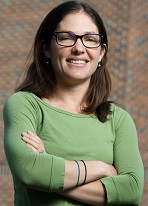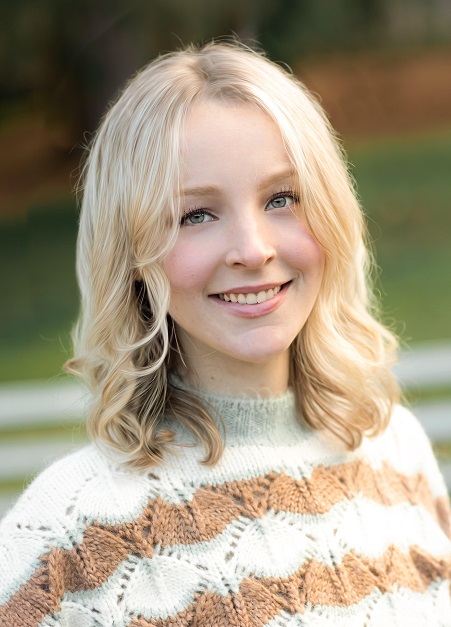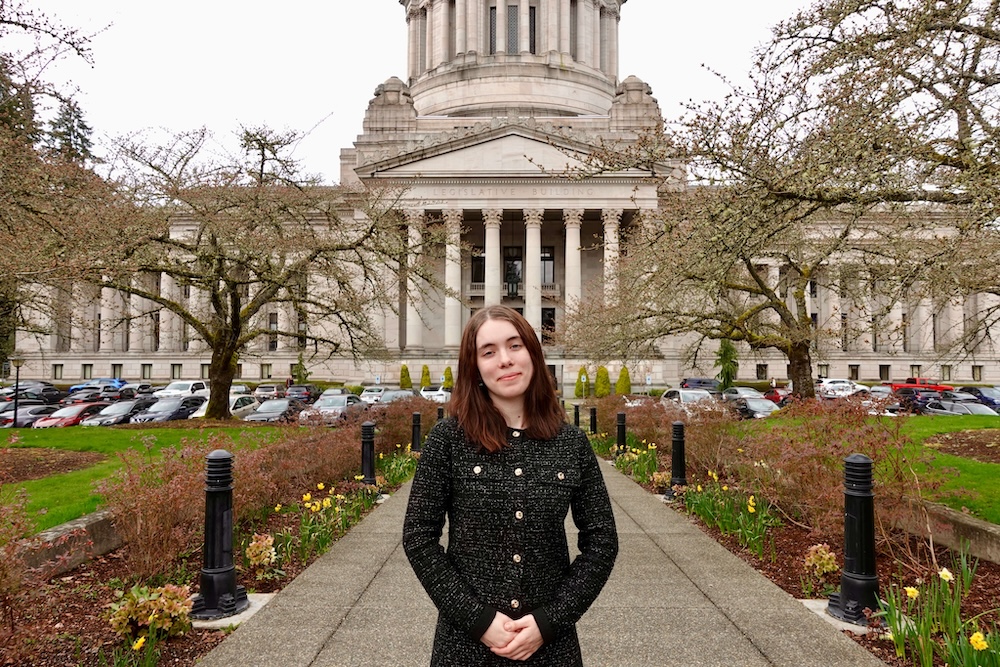A new cohort of student ambassadors from the University of Washington Bothell will be reaching out to community college students underrepresented in science, technology, engineering and math to let them know they’re welcome in the land of STEM.
UW Bothell ambassadors known as the STEM Public Outreach Team or SPOT have been operating since Dr. Joey Shapiro Key brought the idea to campus in 2016. Last year, the assistant professor in the School of STEM received support for SPOT through a Scholarship, Research and Creative Practice seed grant. The year-long grant project will show how SPOT can recruit women, ethnic minorities, individuals with disabilities, people with low-income backgrounds and those who will be the first in their immediate families to receive a four-year college degree.
The goal is to support diverse students in the School of STEM, which is not as diverse as UW Bothell as a whole, said Key, who primarily teaches physics and astronomy and is active in science outreach more generally.
The $22,000 grant also engages UW Bothell mathematics faculty and colleagues at UW’s Center for Evaluation & Research for STEM Equity.
Science shows

The grant project started last summer when the center surveyed SPOT ambassadors about their work. Ordinarily, they would go to K-12 schools, libraries and the Pacific Science Center in Seattle to present a visual “show” called Tuning in to Einstein’s Universe. It’s about gravitational wave astronomy, an area of Key’s expertise. Most of the SPOT ambassadors also have been members of Key’s research group.
The seed grant also brought in Dr. Linda Simonsen, professor, who helped write a new show with Drs. Jennifer McLoud-Mann and Casey Mann, professors, about their discovery that made math history in 2015. With undergraduate researcher David Von Derau, they discovered the 15th kind of pentagon shape that can cover a flat surface. The new SPOT show about that research is called Math Adventures: Tessellating with Polygons.
Ava Stockman, student manager of the grant project, helped develop the new show and presented it for the first time in a videoconference Jan. 11 with about a dozen students in the Upper School math team at Eastside Preparatory School in Kirkland.
Ambassadors wanted

This winter, faculty and advisers will recruit at least six new SPOT ambassadors, inviting students from groups underrepresented in STEM into the paid positions, Key said. After training from Stockman, the outreach emissaries will present shows during spring quarter to students in science and math courses at regional community colleges.
As “near-peer role models,” they’ll be spreading excitement about STEM and, by extension, UW Bothell, Key said. “Community college students can see in these SPOT ambassadors that UW Bothell is a good place for them.
“By having UW Bothell ambassadors from groups that are traditionally underrepresented in STEM talking to them about math and physics, community college students will see this is a place where they can be successful,” Key said.
In the final phase of the grant project later this year, the Center for Evaluation & Research for STEM Equity will survey the ambassadors about their experiences. That information will be shared with UW Bothell’s Office of Sponsored Research to show how the ambassador model could be used by others to engage students and build a community network.
SPOT-on ambassador

Stockman, a graduate of Bellevue College who plans to attend UW Bothell in the fall to major in Electrical Engineering, became a SPOT ambassador last summer. Although not yet a UW Bothell student, she was part of a research experience for undergraduates led by Key. Stockman researched software that will be needed by the planned Laser Interferometer Space Antenna (LISA) mission.
Stockman said presenting makes her nervous, but that wasn’t apparent in the hour-long Math Adventures videoconference with the Eastside Prep math club. From defining polygons and tessellation with examples from honeycombs and floor tiles to sharing the art of M.C. Escher, Stockman built up to the pentagon puzzle that was solved by UW Bothell faculty. There’s plenty of research left to do, she told the high school students. “You can really make a big difference, too.”
When Stockman began her research experience, she had doubts about how much of a difference someone who didn’t even have a bachelor’s degree could make. “My hope is that these students won’t have that doubt, if any of them decide to go into undergraduate research,” she said.
Less of a boys’ club
Stockman likes math and became interested in electrical engineering after talking with an uncle who is a mechanical engineer. The makeup of her math and physics courses in community college has been mostly males who tend to form groups with other males, she said.
“People in my classes have been nice,” she said. “It would be nice to see more girls in those classes and less of a boys’ club type of thing.”
Stockman hopes the SPOT ambassador program will cast a variety of people as representatives of STEM. “We definitely want to get women and underrepresented people in STEM out there, showing other people that they’re doing this,” she said.
The STEM ambassador’s message: “It’s not impossible, and you’re welcome in the field.”



